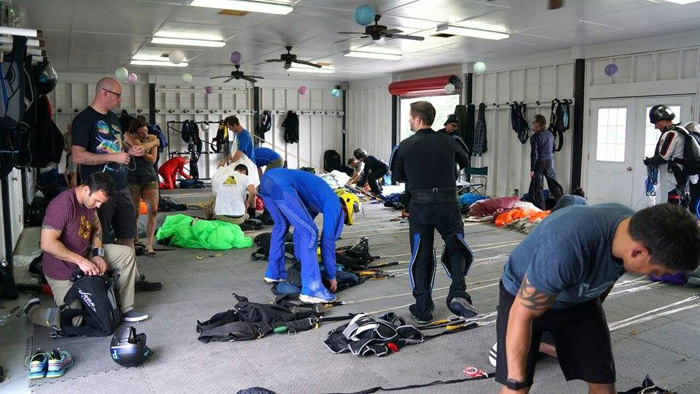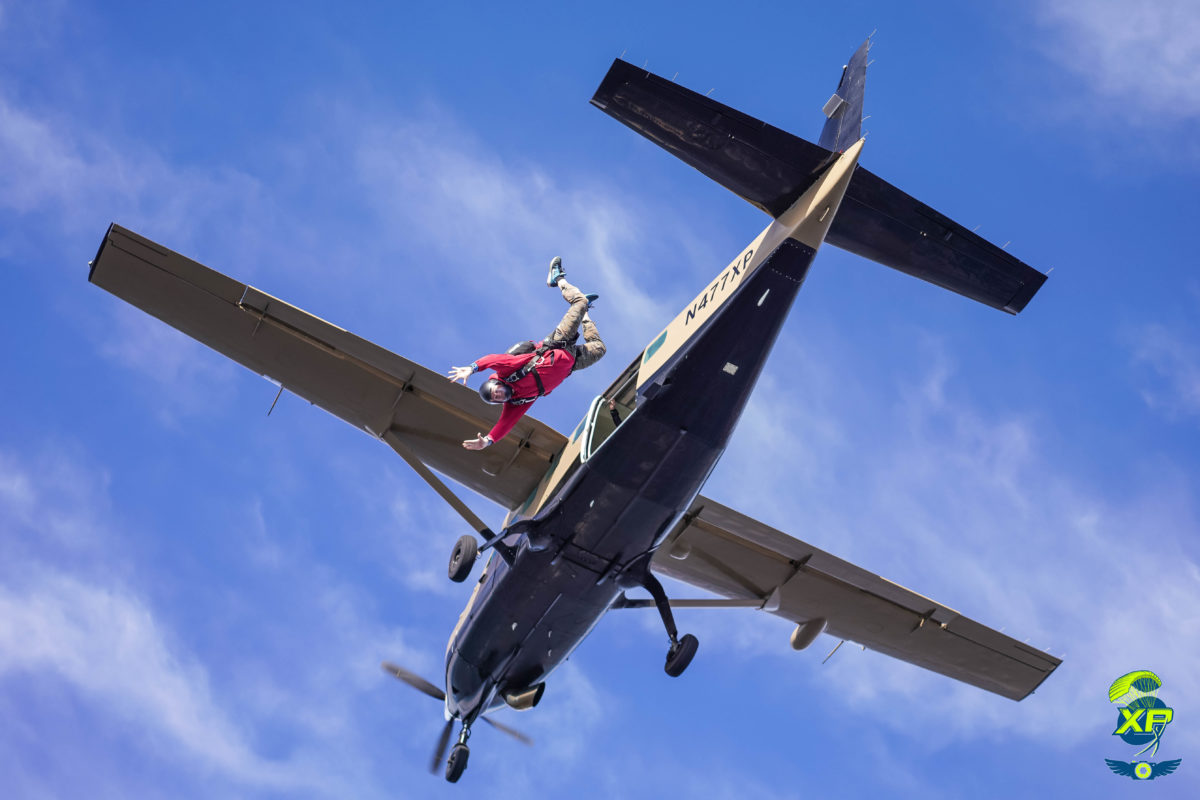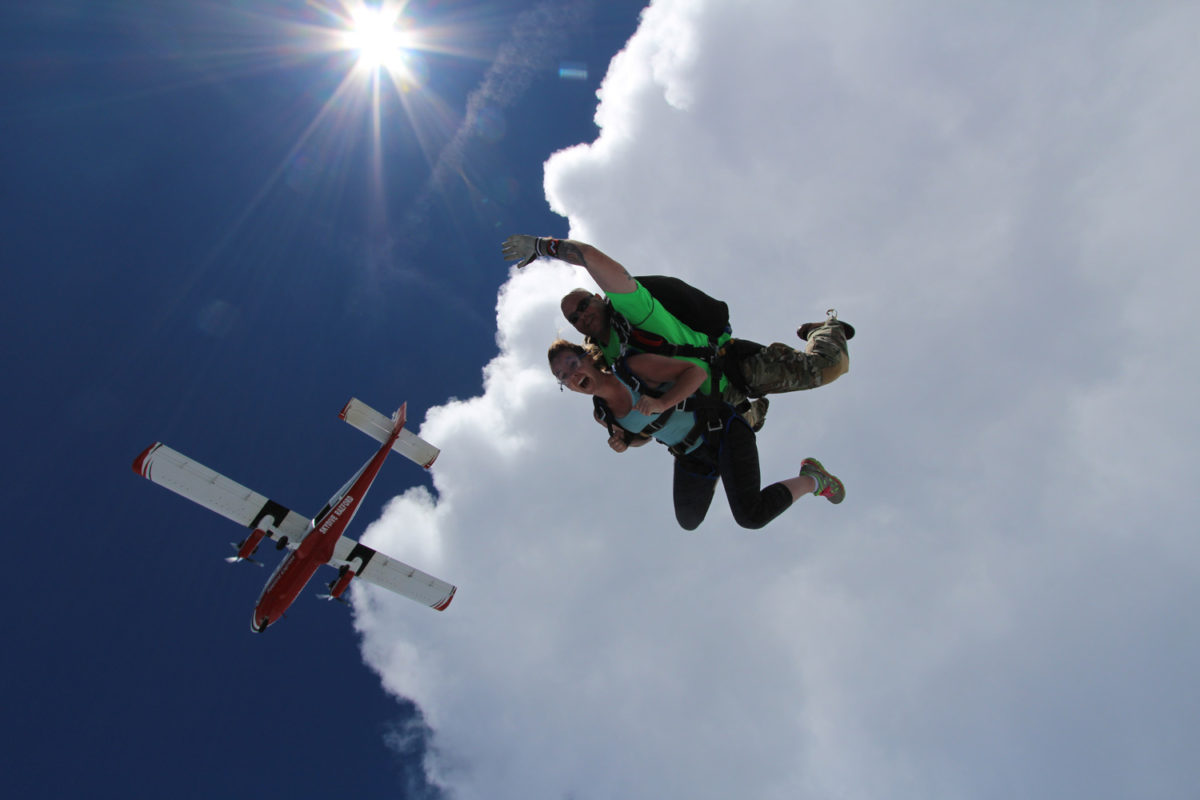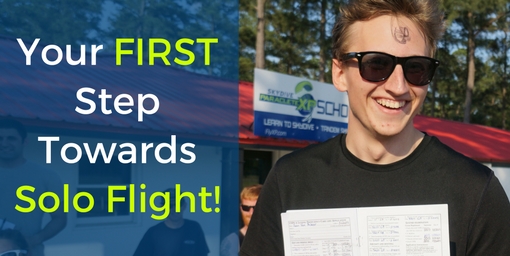
How To Start A Career In Skydiving
Thursday, December 19, 2019
- Team FlyXP
- 12/19/19
- 0
- General
Getting a job as a skydiver is not only possible, it is a diverse and rewarding profession that happens in every corner of the globe. People who work as professional skydivers are not superhumans. They are just regular folks who tried it once and got bitten hard by the desire to get back up in the sky again, and again, and again. Asking your tandem instructor how many jumps they have done will likely result in a flabbergasting answer of many thousands, yet there are ways into the industry that can get you going in the right direction much sooner than you think. Here is some information about how to get started:
Packing Parachutes:
Becoming a packer of parachutes is a time-honored way for new jumpers to get into the swing of life working on a dropzone. If you get good at it and work hard you can make enough money to pay for all the jumps you want to do. Importantly, becoming a packer gives you access to knowledge and contact with all the people who already work in the areas you might be looking at. Many highly experienced jumpers started their professional skydiving career this way.

Dropzone Operations:
Commercial skydiving operations have various roles to fill on the ground that keep everything running smoothly. They have manifest people to meet, greet and organize everybody correctly, editors are required to assemble the awesome images and video, and groundskeeping staff to keep things presentable. Dropzones need reliable and personable people in these roles as ground staff as they are often the first point of contact with the general public. Similar to packing parachutes, a position in skydive operations gives you access to the knowledge, facilities, and contacts you need to help get a skydiving job.
Flying The Plane:
While not exactly a job as a skydiver, becoming a skydiving pilot (or ‘Jump Pilot’) is a good way for a stick-and-rudder type to work on getting the flying hours they need to progress their aviation career. Working a pilot job for a skydiving company is an exciting way to fly while developing vital career experience. Skydivers are a fun bunch to be around, and more than a few skydive pilots are jumpers themselves, joining in whenever someone else can be found to fly the plane for a bit.

Flying Camera:
The first employable position you can get actually skydiving for money is that of the camera flyer. Capturing images and videos of people’s once-in-a-lifetime experience is a valuable service for a dropzone to be able to offer. Most skydiving associations around the world require you to have a couple of hundred jumps completed before you can start practicing with a camera. At some point after that, if you communicate well and cultivate a responsible reputation on the dropzone, you should be allowed to start offering ‘spec’ jumps. You don’t get paid for these as you are officially there just to practice, but you do have the opportunity to sell your material to the student afterward. These jumps help you to develop the skills you need to be valuable to the operation both in the air and on the ground. A flying camera is an excellent stepping stone to acquiring enough jumps to get to the next step…
Tandem Skydiving:
In the USA you need eight hundred skydives under your belt before you can take others along for the ride as a Tandem Instructor. The skydiving industry is built on a foundation of income generated by tandem skydiving, and as such, there is a steady demand for reliable, personable instructors to introduce the general public to the world of freefall. For many tandem instructors, taking tandem students for their first jump is an amazing privilege that gives them repeated access to the energy and thrill of what it is like to skydive for the first time.

Instructing:
Teaching others to jump by themselves is for many professional skydivers the best job they can have. At skydiving school, they’re passing their passion for the sport on to eager new students who have the skydiving bug the same way they did. The most common method of achieving a skydiving license is through the Accelerated Freefall Course. To be an AFF instructor you need 500 jumps.
Coaching:
Very simply, coaching means passing on skills you have learned to other people who are already qualified skydivers. While you can become a qualified coach relatively early in your jumping career, to develop the skill, knowledge, and reputation to turn coaching into real money takes vastly longer. There are coaches out there who make a living just from working as a coach, but almost all of them have passed through some or all of the other positions listed above to get there. This is a complex area best learned about in the field, and while it is entirely possible down the road, it is best thought of as a way of supplementing your work and providing some variety for the time being.
Conclusion:
Skydiving careers are often made up of various roles, and while some specialize in a single area, there are just as many industry professionals who seek to broaden their knowledge and expertise to contain as many skydiving jobs as possible. The jobs listed above are stepping stones in a richly rewarding career that allows you to level up as you gain the correct experience. What are you waiting for?
Copyright © 2025, Skydive Paraclete XP, All Rights Reserved.
DropZone Web Design & Marketing by Beyond Marketing, LLC
